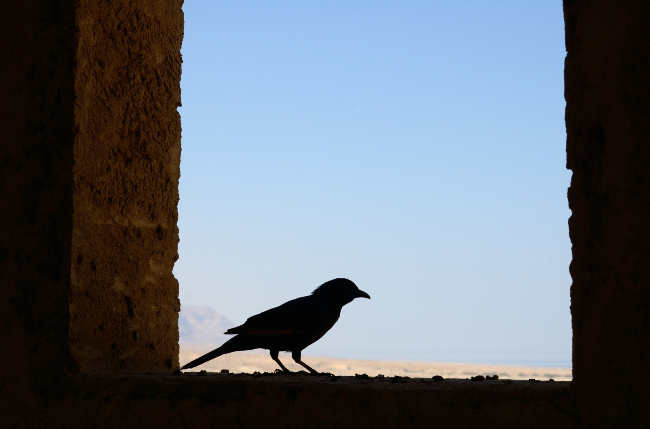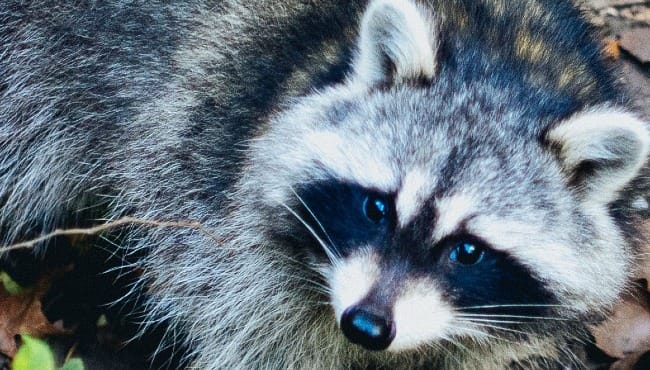The poem, Iowa City: Early April by Robert Hass, a former Poet Laureate of the U.S., speaks of a creation full of life, visible and active all around us. Like the bat in the poem, it stops us in our tracks, and can, when it is "loose," fly straight at our face and make us topple to the floor. In my estimation, this kind of stunning encounter is well worth making space for in myself and my surroundings.
Iowa City: Early April
By Robert Hass
This morning a cat—bright orange—pawing at the one patch of new grass in the sand-and
tanbark-colored leaves.
And last night the sapphire of the raccoon's eyes in the beam of the flashlight.
He was climbing a tree beside the house, trying to get onto the porch, I think, for a wad of oatmeal
Simmered in cider from the bottom of the pan we'd left out for the birds.
And earlier a burnished, somewhat dazed woodchuck, his coat gleaming with spring,
Loping toward his burrow in the roots of a tree among the drying winter's litter
Of old leaves on the floor of the woods, when I went out to get the New York Times.
And male cardinals whistling back and forth—sireeep, sreeep, sreeep—
Sets of three sweet full notes, weaving into and out of each other like the triplet rhymes in medieval
poetry,
And the higher, purer notes of the tufted titmice among them,
High in the trees where they were catching what they could of the early sun.
And a doe and two yearlings, picking their way along the worrying path they'd made through the gully,
their coats the color of the forest floor,
Stopped just at the roots of the great chestnut where the woodchuck's burrow was,
Froze, and the doe looked back over her shoulder at me for a long moment, and leapt forward,
Her young following, and bounded with that almost mincing precision in the landing of each hoof
Up the gully, over it, and out of sight. So that I remembered
Dreaming last night that a deer walked into the house while I was writing at the kitchen table,
Came in the glass door from the garden, looked at me with a stilled defiant terror, like a thing with no
choices,
And, neck bobbing in that fragile-seeming, almost mechanical mix of arrest and liquid motion, came to
the table
And snatched a slice of apple, and stood, and then quietened, and to my surprise did not leave again.
And those little captains, the chickadees, swift to the feeder and swift away.
And the squirrels with their smoke-plume tails trailing digging in the leaves to bury or find buried—
I'm told they don't remember where they put things, that it's an activity of incessant discovery—
Nuts, tree-fall proteins, whatever they forage from around the house of our leavings,
And the flameheaded woodpecker at the suet with his black-and-white ladderback elegant fierceness—
They take sunflower seeds and stash them in the rough ridges of the tree's bark
Where the beaks of the smoke-and-steel blue nuthatches can't quite get at them—
Though the nuthatches sometimes seem to get them as they con the trees methodically for spiders'
eggs or some other overwintering insect's intricately packaged lump of futurity
Got from its body before the cold came on.
And the little bat in the kitchen lightwell—
When I climbed on a chair to remove the sheet of wimpled plastic and let it loose,
It flew straight into my face and I toppled to the floor, chair under me,
And it flared down the hall and did what seemed a frantic reconnoiter of the windowed, high-walled living
room.
And lit on a brass firelog where it looked like a brown and ash
grey teenaged suede glove with Mephistophelean dreams,
And then, spurt of black sperm, up, out the window, and into the twilight woods.
All this life going on about my life, or living a life about all this life going on,
Being a creature, whatever my drama of the moment, at the edge of the raccoon's world—
He froze in my flashlight beam and looked down, no affect, just looked,
The ringtail curled and flared to make him look bigger and not to be messed with—
I was thinking he couldn't know how charming his comic-book robber's mask was to me,
That his experience of his being and mine of his and his of mine were things entirely apart,
Though there were between us, probably, energies of shrewd and respectful tact,based on curiosity and
fear—
I knew about his talons whatever he knew about me—
And as for my experience of myself, it comes and goes, I'm not sure it's any one thing, as my experience
of these creatures is not,
And I know I am often too far from it or too near, glad to be rid of it which is why it was such a happiness,
The bright orange of the cat, and the first pool of green grass-leaves in early April, and the birdsong—that orange and that green not colors you'd set next to one another in the human scheme.
And the crows' calls, even before you open your eyes, at sunup.

This poem is not just a series of lovely images and stories about encounters with various creatures, but I also find, embedded in the poem, words that can guide how I approach, learn from, and fully experience encounters of this kind. These ideas are uncovered from within the poem as the moments of encounter are described.
Here is some of the wisdom I find within the poem's stories.
Develop a spirit of observation. As this life is swirling around you, pay attention to colors, sounds, movements that alert you to that life. Experience each particular moment—because it won't last. Then be ready for the next one that will arise as this one bounds away. Notice things.
Develop a spirit of discovery. Like the squirrels in the poem, there are discoveries for us to make, over and over again.
I'm told they don't remember where they put things, that it's an activity of incessant discovery–
This model of incessant discovery is appealing. Maybe we don't need to be forgetful to achieve it. Squirrels don't get bored with a buried nut just because they have buried a thousand nuts before. Novelty isn't a prerequisite of a new experience, only an openness to rediscovery is.
Develop a spirit of hospitality and respect. If you want other creatures to be part of your neighborhood, plant apples, nuts, put out oatmeal, welcome them into your life, even into your dreams. Savor the differences between you. We don't have to completely understand another creature to allow it a place in our lives. Practice hospitality.
Though there were between us, probably, energies of shrewd and respectful tact, based on curiosity and fear—
Develop a spirit of humility. Other creatures are as busy with their own lives as I am with mine. I am not central to the other creatures, although my hospitality can be of benefit to them. It is good for me to remember that I am not the center of their universe any more than they are the center of mine.
"All this life going on about my life, or living a life about all this life going on
Being a creature, whatever my drama of the moment, at the edge of the raccoon's world—
Develop a spirit of remembering. The poem comes back again and again to the passing of time: days, seasons, nights, hours, moments. Life and experiences do not stand still, but are instead moving pictures. But although moments can't be frozen in time, they can be held in memory, as this poem shows. In this way they can become sustenance for us when harder times come—in the same way that the eggs which the nuthatches find in the trees are:
"...intricately packaged lump of futurity/Got from its body before the cold came on."
Develop a spirit of joy. Moments of vivid life can unchain us from an unhealthy self-absorption. Something that startles or delights us can jolt us free from ourselves, for at least a time. When something other fills us up, we can gain joy and a better perspective on our place in the world.
And as for my experience of myself, it comes and goes, I'm not sure it's any one thing, as my experience of these creatures is not./And I know I am often too far from it or too near, glad to be rid of it which is why it was such a happiness,/The bright orange of the cat, and the first pool of green grass-leaves in early April, and the birdsong—that orange and that green not colors you'd set next to one another in the human scheme.
Reflection Questions: Do you have a memory of encounter with a wild creature that is particularly significant to you? In what ways are you welcoming creatures different from yourself into your life?

Robert Hass has said about this poem, "We live in families, not on islands. That's where human polity starts. We live among other creatures."
To leave a comment, click below or contact me directly at info@circlewood.online.
Louise
